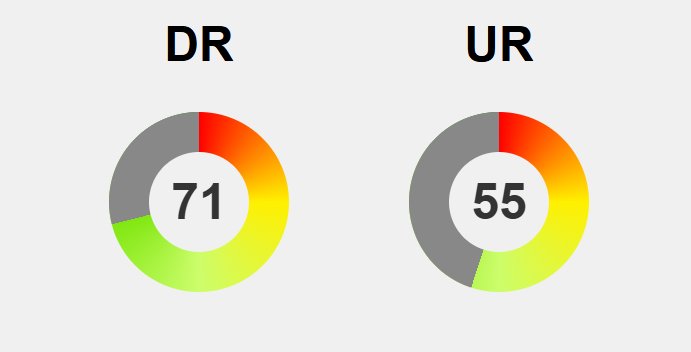Beneath Cancer’s nurturing and empathetic exterior lies a complex emotional landscape filled with hidden vulnerabilities rooted in past wounds, rejection, and deep-seated fears. While they excel at creating safe havens and connecting on profound levels, their internal world often brims with turbulent feelings, mood swings, and cautious retreat. How do they navigate these emotional storms without sacrificing their innate kindness? The key may lie in cultivating self-awareness, establishing boundaries, and embracing vulnerability as a source of strength. Experts highlight that recognizing and tending to their emotional scars can transform internal pain into resilience, fostering healthier relationships and deeper self-acceptance. But will their delicate balance of caring and guarding be enough to turn their hidden wounds into wells of inner strength? This journey of understanding, patience, and gentle support reveals that emotional vulnerability, when managed wisely, can serve as a powerful foundation for growth and authentic connection.
Unveiling Cancer’s Nurturing Heart and Hidden Vulnerabilities
Cancer’s nurturing nature is one of their most defining traits, shaping how they relate to everyone around them. They have an almost instinctive ability to create a sense of comfort and belonging, turning everyday spaces into personal sanctuaries filled with warmth and understanding. Whether in family gatherings or among friends, Cancers naturally assume the role of emotional glue, offering support and kindness without needing to be asked. Their deep empathy allows them to sense others’ feelings quickly, often providing reassurance through quiet gestures or simply being present.
Beneath this outward display of caring lies a more complex emotional world. Cancers are highly sensitive and tend to internalize their feelings, making their emotional landscape feel delicate and layered. Their caring exterior acts as a shield, protecting them from exposing vulnerabilities they might not even fully acknowledge. This instinct to retreat into their shell when overwhelmed isn’t a sign of weakness—it’s a natural way for them to safeguard their inner self from further hurt.
Just like the crab’s shell, their outer layer is tough, but inside, they’re soft and vulnerable. This duality helps them process difficult feelings away from external pressures, giving them space to reflect and recover. Their shell isn’t merely defensive; it’s essential for their resilience, allowing them to emerge stronger after emotional storms. Many Cancers work hard to maintain this balance—caring deeply while guarding their fragile inner world from harm.
Despite their kindness, many carry unseen wounds from past experiences—loss, rejection, or betrayal—that leave scars beneath their caring facade. Their tendency to internalize pain and avoid vulnerability often means these wounds stay hidden, even from themselves. This guardedness helps them maintain stability but can make it hard for others to truly understand what they’re going through. Recognizing this emotional complexity is key to grasping why Cancers sometimes retreat quietly or seem distant, even when they appear calm on the surface.
Their internal world can be turbulent, filled with mood swings, doubts, or feelings of overwhelm that rarely show outwardly. These emotional waves are fueled by fears of rejection and a longing for unconditional love. To protect themselves, they bury pain deep inside, creating a barrier that’s difficult for others to see. This internal storm often remains hidden, making their vulnerability all the more profound and their emotional resilience all the more remarkable.
Understanding a Cancer’s emotional landscape means seeing beyond their caring exterior to the fears and wounds they work tirelessly to hide. When loved ones approach with patience and genuine understanding, Cancers gradually begin to feel safe enough to open up. This process is slow, but it allows their true selves to emerge, turning hidden pain into sources of strength. Recognizing and respecting their emotional boundaries helps build trust, fostering deeper, more authentic connections.
Getting to know a Cancer means appreciating their delicate balance—how they nurture others while protecting their own vulnerabilities. Their outward kindness is driven by a desire to shield themselves from pain, but it also creates the foundation for meaningful relationships. When their internal struggles are acknowledged with patience, they learn to trust and share more openly. This ongoing journey of self-awareness and gentle care can transform their hidden wounds into wells of resilience, enriching both their lives and those of the people they hold dear.
Discover the Concealed Wounds That Shape Cancer’s Emotions
Cancer individuals often carry emotional wounds that are rarely visible on the surface. These vulnerabilities typically originate from past experiences—such as rejection, betrayal, or loss—that leave deep scars beneath their caring exterior. Their tendency to internalize pain and avoid vulnerability creates a protective barrier, shielding their fragile inner world from further harm. This armor helps them maintain stability but also makes it difficult for others to truly grasp what they’re experiencing beneath the surface.
Many of these wounds are rooted in their intense sensitivity to criticism and their deep fear of rejection. Cancers are highly receptive to others’ feelings, which makes them empathetic but also vulnerable to negative remarks. Even a small critique can trigger feelings of inadequacy or self-doubt, prompting them to retreat or withdraw. Their longing for unconditional love fuels this fear, making it hard for them to fully open up or show their true emotions without risking hurt.
The scars they carry often remain invisible but profoundly impact their emotional well-being. Early life experiences—such as abandonment or betrayal—leave lasting impressions that shape their inner world. Because they tend to internalize these pains, many of their wounds stay buried beneath layers of caution and reserve. They might not even realize the extent of their internal pain, which can foster feelings of emotional isolation and loneliness.
Their internal wounds often manifest as turbulent feelings—mood swings, overwhelm, or persistent self-doubt—that stay hidden from view. Despite appearing calm or composed externally, they are frequently navigating a storm of emotions beneath the surface. These internal struggles are driven by fears of rejection and a deep desire for acceptance, making the idea of vulnerability feel risky and threatening.
This tendency to conceal pain acts as a defense mechanism. By guarding their vulnerabilities, Cancers protect themselves from further disappointment or heartbreak. However, this armor also prevents loved ones from truly understanding their struggles. They give generously and support others outwardly, yet keep their deepest fears private, creating a barrier to genuine connection. Recognizing these hidden scars is essential to understanding why they sometimes retreat into silence or seem distant even when they care deeply.
Beneath their nurturing exterior, many Cancer individuals harbor fears of inadequacy and abandonment rooted in early wounds. Their caring actions often serve as both a shield and a way to control their environment, protecting their fragile self-esteem. This internal conflict between vulnerability and self-protection influences much of their emotional behavior, shaping how they relate to others and how they handle their own pain.
Understanding these concealed vulnerabilities requires patience and compassion. When others validate their feelings and respect their need for space, Cancers gradually feel safe enough to share more of their inner world. Recognizing and honoring their emotional scars allows them to transform pain into resilience. Over time, they learn that vulnerability is not a weakness but a vital step toward healing and authentic connection.
Master Strategies to Navigate and Calm Emotional Storms
Managing emotional storms can be overwhelming for Cancer individuals, but developing practical strategies can make a real difference. The first step is cultivating self-awareness—paying close attention to your feelings allows you to notice early signs of emotional overload before they escalate. Recognizing these cues gives you the chance to pause, breathe, and choose a calmer response instead of reacting impulsively. When you tune into your emotional signals, it becomes easier to prevent small frustrations from spiraling into full-blown storms.
Creating simple self-care routines is equally vital. Journaling offers a safe space to process complex feelings and gain clarity about your inner world. Incorporating meditation or deep breathing exercises can ground your mind during turbulent moments, providing a quick reset when emotions threaten to take over. Making your home environment soothing—soft lighting, calming music, or comforting scents—can serve as an emotional sanctuary, giving you a retreat when you need to recharge and regain composure.
Building a trusted support network is another key element. Sharing your fears and frustrations with understanding friends or a therapist can lighten your emotional load and offer perspective. Knowing someone is there to listen without judgment encourages openness and helps you feel less isolated during difficult times. Setting healthy boundaries is also essential; learning to say no to draining situations or people preserves your energy and prevents emotional exhaustion, allowing you to protect your well-being without shutting out support.
Grounding techniques, like focusing on your breath, feeling your feet on the floor, or visualizing a safe space, can restore calm when feelings threaten to overwhelm you. These practices become part of your toolkit, helping you navigate emotional turbulence more effectively. Instead of seeing vulnerability as a weakness, view it as an opportunity for resilience—embracing your emotions with patience and kindness transforms chaos into a chance for growth.
Resilience isn’t about suppressing feelings but accepting them with compassion. Practicing self-compassion allows you to see emotional waves as natural parts of life rather than threats. Recognizing setbacks as growth opportunities builds confidence and makes future storms easier to manage. Celebrating small wins—like successfully setting a boundary or handling a tough conversation—reinforces your ability to cope and adapt, gradually strengthening your inner resilience.
Patience and kindness towards yourself are vital as you learn to turn turbulence into opportunities for self-discovery. Over time, these strategies help you develop a more stable sense of inner strength, allowing your nurturing qualities to flourish without the weight of unspoken fears. Navigating emotional storms with awareness and gentle care becomes a pathway to greater resilience, enriching your relationships and deepening your understanding of your inner world.
By consistently applying these techniques, you can build a stronger foundation for emotional resilience. For those seeking further guidance, exploring resources on how to manage emotional stress can be incredibly beneficial. You might find helpful insights in this comprehensive guide on Master Strategies to Navigate and Calm Emotional Storms, which offers practical tips tailored for Cancer individuals striving to maintain emotional balance.
Expert Insights into Cancer’s Deep Emotional Strength and Fragility
Experts in psychology and emotional health highlight that Cancer’s profound empathy and intuitive nature serve as both their greatest strengths and their most vulnerable points. Dr. Lisa Miller emphasizes that their ability to connect deeply with others can forge meaningful bonds, yet it also leaves them prone to emotional exhaustion if they neglect their own needs. Establishing boundaries is essential; it allows Cancers to protect their energy without shutting down their capacity to care, striking a delicate balance that sustains their resilience.
Therapists often recommend creating safe, judgment-free spaces where Cancer individuals can freely express their feelings. When supported in such environments, they tend to open up gradually, learning to distinguish their own emotions from those they absorb from others. This process not only reduces internal tension but also helps them maintain emotional equilibrium. Such supportive practices are vital for managing their internal worlds and preventing overwhelm.
Research backs the importance of self-awareness and boundary-setting in strengthening Cancer’s resilience. Recognizing the early signs of emotional overload—like mood swings or persistent doubts—enables them to engage in grounding activities such as journaling, meditation, or mindful breathing. These tools serve as anchors, transforming vulnerability from a weakness into a well of strength. Over time, they learn that acknowledging and tending to their feelings fosters a more resilient, balanced inner life.
Many mental health professionals see Cancer’s nurturing instinct as a double-edged sword. Their caring nature often extends inward, prompting them to prioritize self-care and emotional health. Viewing vulnerability not as a flaw but as an integral part of being human allows Cancers to build resilience rooted in authenticity. When they accept their sensitivities, they cultivate a sturdy foundation that can withstand life’s inevitable challenges.
Stories of Cancer individuals overcoming internal struggles reveal a quiet, steadfast bravery. Whether through therapy, support groups, or personal reflection, they demonstrate that resilience involves nurturing both their emotional needs and their capacity for growth. Recognizing their vulnerabilities as opportunities for healing helps transform internal wounds into sources of deep empathy and strength.
Ultimately, understanding Cancer’s emotional depth involves appreciating the nuance of their inner world. Their resilience isn’t about erasing vulnerability but embracing it as part of their human experience. Supporting them with patience and compassion encourages a shift from self-protection to self-acceptance. In doing so, they can turn hidden wounds into wells of strength that enhance their ability to nurture others and themselves alike.
Embracing Growth: Supporting and Growing Beyond Hidden Wounds
Understanding and supporting Cancer’s emotional world is an ongoing journey that benefits everyone involved. When we look beyond their caring exterior to recognize the hidden vulnerabilities—their sensitivity to criticism, fears of rejection, and internal wounds—we create a foundation of trust and safety. Such awareness fosters more genuine connections, allowing Cancer individuals to feel truly seen and understood. When loved ones approach with patience and empathy, it encourages them to share more of their inner selves, transforming vulnerability from a source of fear into a bridge for deeper intimacy.
For Cancers themselves, embracing self-awareness offers a powerful path forward. Tuning into their feelings and practicing gentle self-care can turn internal struggles into sources of strength. Simple routines like journaling, meditation, or giving themselves permission to rest reinforce resilience over time. These practices help process emotions more effectively, reducing the tendency to internalize pain and preventing emotional overload. As they become more attuned to their needs, they build a toolkit for managing storms with greater confidence, gradually moving towards a more balanced inner state.
Supporters play a crucial role in this process. Creating safe spaces where Cancer individuals feel comfortable expressing their vulnerabilities builds trust and nurtures genuine connection. Showing patience, offering sincere reassurance, and respecting their need for emotional retreat help them feel accepted for who they are. When others listen without judgment and validate their feelings, Cancers are more likely to open up and share their true selves. This mutual understanding turns vulnerability into an empowering experience, fostering deeper bonds and emotional growth.
As Cancers learn to navigate their emotional storms with patience and kindness, they develop a more resilient sense of self. Growth isn’t about erasing vulnerability but accepting it as part of their human experience. Over time, fears transform into resilience, allowing their natural nurturing qualities to flourish without being weighed down by hidden wounds. Celebrating small victories—like setting healthy boundaries or managing difficult conversations—reminds them of their capacity to adapt and thrive.
Supporting ongoing emotional development requires patience and compassion. Healing and self-discovery happen gradually, and respecting this pace is key. When Cancers treat themselves with kindness and understanding, they lay the groundwork for a more authentic, fulfilling life. Their ability to nurture others becomes even stronger when they nurture themselves first, creating a cycle of growth and resilience that benefits everyone around them. Embracing vulnerabilities as sources of strength unlocks a future rooted in genuine self-awareness and emotional balance, enriching relationships and deepening their inner peace.


